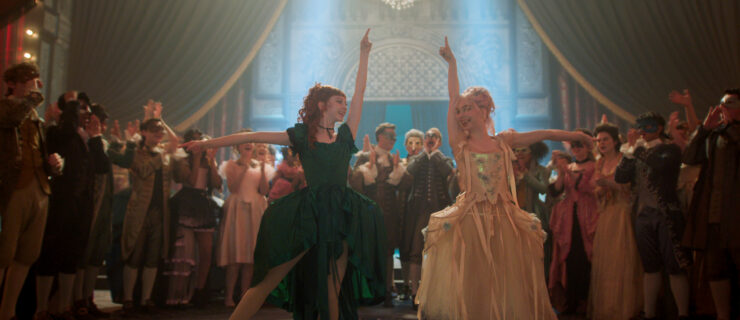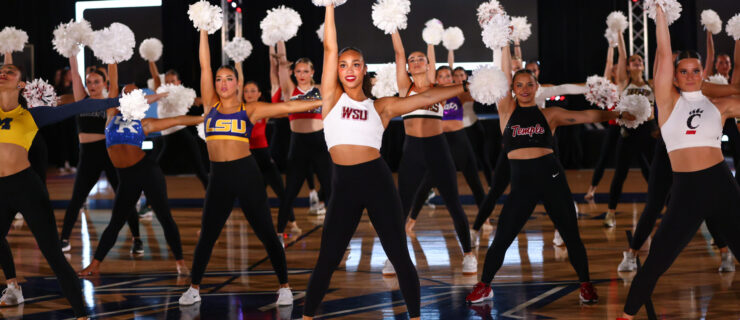Doubling Up
Dancers are known for being organized, driven and busy. So it’s no surprise that many who attend college choose to double-major in dance and another field. “Dancers who are serious about their art in high school are already prepared to balance technique classes and performances with academic work in a university setting,” says Lynn Garafola, dance department co-chair at Barnard College in NYC.
But double majoring isn’t for everyone, and it often comes with some difficult decisions. Read on to hear from professors and recent graduates about the ins and outs of double majoring—and to discover unique ways dancers can combine their diverse interests.
Finding the Best Program for You
Some conservatories only offer a bachelor of fine arts (BFA), which can be difficult or even impossible to balance with a second major. If pursuing a double major is a priority, you may want to consider a program that offers a bachelor of arts (BA) in dance. “If a student expresses an interest in double majoring, we often place them in the BA program rather than BFA,” explains Rubén Graciani, chair of the dance department at Point Park University in Pittsburgh, PA, which offers both degrees. “These students will have the same performance opportunities but fewer requirements for technique classes, which frees up their schedule for academic courses.”
Due to their inherent interdisciplinary nature, liberal arts colleges can be ideal for students hoping to double-major. Rebecca Bass, a recent graduate from Barnard College, which is affiliated with Columbia University, chose to double-major in dance and economics. “I chose Barnard because it has a very malleable dance program,” Bass says. “You can choose whether you want your four years to be more technically or academically oriented.” She also discovered that economics and ballet are surprisingly similar. “They both have rules that you have to follow, but they also require you to bring a level of artistry to your work,” she says. Her final project was a joint written thesis on the influence of the Upper Manhattan Empowerment Zone (a nonprofit organization that seeks to revitalize communities through job creation and business development) on the Dance Theatre of Harlem. “I proved to my econ professor that dance is socially and politically relevant,” she says.
Point Park dancers performing Terence Marling’s Fatum Inflictum
(photo by Jeff Sweeny, courtesy Point Park University)
Weighing Your Options
College should be a place of learning, exploration and discovery—goals that may not be achieved if a student becomes overwhelmed by a double major. “I caution students that more isn’t always better for your schedule,” Graciani says. “Sometimes your body and your brain need time to process.”
Every college career will be filled with difficult scheduling decisions. “There are tons of ways for students to be involved on campus and in the community,” Graciani says. But you can’t possibly do it all. He advises students by asking them ‘What are you hoping to achieve in the long term?’ and then ‘What are you willing to sacrifice?’ to determine what performance opportunities, internships and classes work best in their schedule.
That said, by combining two majors, you can build a more diverse resumé for future careers. Christina Cairns, a BA in dance and BS (bachelor of science) in sports, arts and entertainment management at Point Park, was able to continue her dance training while also preparing herself to work in arts administration. One of her first jobs out of school—working on a startup smartphone app—involved many travel opportunities, and the company allowed her to audition while on business trips. “At the time, I didn’t know if I wanted to stay in dance or transition to a business career, but I kept all of my options open,” Cairns says. For now, Cairns is focusing on dance: In August 2015, she started a contract with a dance company in Cincinnati, OH.
Staying On Track
If you choose to double-major, be prepared for a jam-packed four years. “You have to be very organized to accomplish a double major,” Garafola says. Because you may not have time to complete internships or jobs during the school year, summer will be an important time to establish professional connections. Allocating summers to try out different potential career paths (for example, working in a scientific research lab one summer and interning at a dance magazine the next summer) will help you discover what you enjoy doing, while also allowing you to establish a wide set of professional skills.
The most important thing to remember when embarking on a double major is to stay in communication with your academic advisors to ensure you’re on track for graduating. Some programs, such as the physical sciences, will be less flexible due to their rigid lab schedules, which can limit options for dance technique classes. Bass used extracurricular dance opportunities to help maintain her dance training throughout her double major. “I only took technique classes twice a week during my final semester, but I was dancing every day due to different dance clubs and student performance opportunities,” she says.
Double majoring can be both a daunting and a rewarding experience. While parents, professors or friends may try to pressure you in your academic decisions, ultimately try to find a balance that will be meaningful to you as both a dancer and a college student.
Point Park University’s Taylor Robinson and Lindsay Burke in Ben Stevenson’s End of Time (photo by Joshua Sweeny, courtesy Point Park University)
Double Majors That Play Well with Dance
Sciences (Pre-Med):
Dancers with double majors in
health sciences, like biology, can go on to study physical therapy, nutrition and exercise practices. The body awareness that comes with dance training will give you a leg up on the industry.
History/Anthropology:
Dancers who learn research methods through these majors can later earn a master’s and/or a PhD in dance theory or history. You might end up studying the history of movement techniques, or unearthing forgotten dance rituals!
English Literature:
Capturing movement through words is a technique of its own. Dancers with writing experience often find jobs and internships with dance magazines, or as dance reviewers for newspapers and journals.
Photography/Film:
Dance films are becoming more and more prevalent, and dancers
are always in need of head shots! Photography can be a great source of income that allows you the flexibility to attend technique classes and auditions.
Psychology:
Dance therapy is a growing field that helps patients work through physical or emotional traumas. You can attend dance therapy graduate programs to earn a degree.
Music:
Dancers who are interested in choreography and music collaboration can benefit from playing their own instruments or writing musical scores. Plus, studying dance and music is a great way to work towards a job on Broadway.



